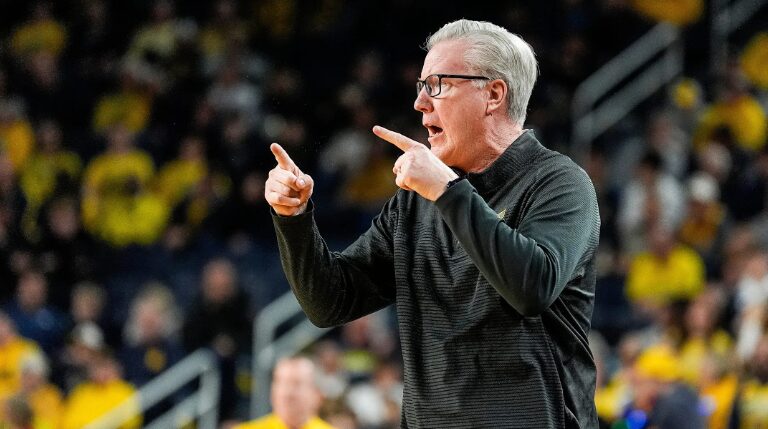Big News: Iowa Hawkeyes Frontrunners to Big Ten Coach as Fran McCaffery Replacement
Iowa Hawkeyes Linked to Big Ten Coach as Potential Fran McCaffery Successor
If the Iowa Hawkeyes decide to part ways with Fran McCaffery, a current Big Ten coach could be in the running to replace him.
The 2024-25 season has not been kind to McCaffery and the Hawkeyes, as they’ve struggled to gain momentum. After a recent loss to Oregon, Iowa dropped to 14-12 on the season and now faces the risk of missing the Big Ten tournament unless they turn things around.
Given the team’s difficulties, there has been speculation that McCaffery’s job could be at risk, with the possibility of a coaching change being considered.
However, moving on from McCaffery would be a difficult decision, and hiring a new head coach isn’t necessarily the most likely outcome for Iowa. Nevertheless, coaching changes do happen, and the idea shouldn’t be dismissed entirely.
In light of this, an interesting candidate has emerged as a potential replacement if the Hawkeyes decide to make a move. Riley Donald of Hawkeyes Wire has suggested Northwestern head coach Chris Collins as a name to watch.
Donald wrote, “A name that could be a sleeper to make a move within the conference is Chris Collins, Northwestern’s coach. The longest long shot of the bunch, Collins could be lured to Iowa if it could offer the proper contract and name, image and likeness licensing assurances.”
Collins has been the head coach at Northwestern since the 2013-14 season, compiling a 191-187 record. Given the resources available at Iowa, a move could provide Collins with the opportunity to work with a stronger roster and more assets.
While this remains a long shot and McCaffery is likely to return for the 2025-26 season, if the Hawkeyes do decide to make a change, Collins could be a name to monitor.



No Comment! Be the first one.